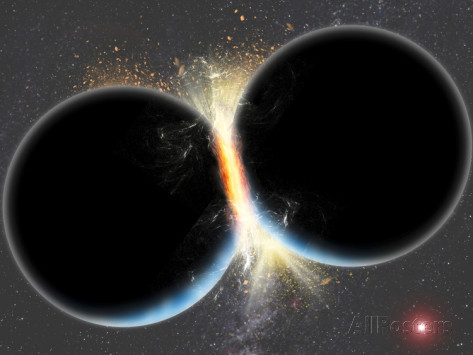Can you feel the gravity?
Two bodies of masses M 1 and M 2 are initially at rest at infinite distance apart. They are then allowed to move towards each other under mutual gravitational attraction. Their relative velocity of approach at a separation distance r between them is __________ .

This section requires Javascript.
You are seeing this because something didn't load right. We suggest you, (a) try
refreshing the page, (b) enabling javascript if it is disabled on your browser and,
finally, (c)
loading the
non-javascript version of this page
. We're sorry about the hassle.
This is a two-body problem. We can turn it into a one-body problem using the reduced mass μ . We know that δ K = − δ U from conservation of energy, so all we have to do is use find v .
− ( − G r M 1 M 2 − 0 ) = 2 1 μ v 2 G r M 1 M 2 = 2 1 ( M 1 + M 2 M 1 M 2 ) v 2
Just solve for v .